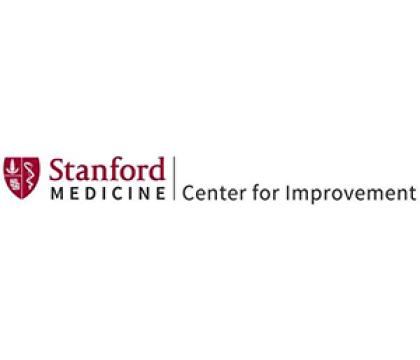Stanford Medicine Center for Improvement (SMCI) Lillie & Donnelly Seed Grant - FY23
Stanford Medicine Center for Improvement (SMCI)
Lillie and Donnelly Seed Grant Program
The Stanford Medicine Center for Improvement (SMCI) Lillie and Donnelly Seed Grant Program aims to promote improvements in quality, safety, efficiency, cost, and patient experience at Lucile Packard Children’s Hospital Stanford (LPCHS) and Stanford Medicine Children’s Health (SMCH) as part of the care we provide to children, expectant mothers, and their families. Through this new grant program, we intend to harness the expertise of faculty, trainees, and staff who work within LPCHS and SMCH to develop and implement innovative pilot projects designed to lead to new approaches to improve our performance and the quality of health care we provide.
Proposals for funding from the Lillie and Donnelly Seed Grant Program should demonstrate the clear potential to create measurable improvement(s) in health care services delivered at LPCHS and SMCH within any discipline and at any level. The seed grants will support improvement activities in operations or processes rather than research designed primarily to generate new knowledge. The projects should be focused on a well-defined problem, oriented towards a specific aim, and practical in nature.
The awards will provide either 12 or 18 months of funding support for performance and quality improvement activities that enhance clinical care and create safer, more effective practices or improve operations and efficiency. These performance and quality improvement initiatives may include, but are not limited to, the following areas:
-
Performance or quality improvement work on systems and processes
- Ex: Reducing waits and delays for both those who receive and those who provide care.
- Ex: Enhancing efficiency with the use of equipment, supplies, or patient care processes.
-
Patient-centered
- Ex. Providing care that is respectful of and responsive to individual patient preferences, needs, and values, and ensuring that patient-centered values guide all clinical decisions.
- Ex. Providing care that does not vary in quality because of individual characteristics such as gender, ethnicity, primary language, and/or socioeconomic status.
-
Focus on being part of a team-based care model
- Collaboration and coordination of care
-
Focus on use of the data about care or care processes
- Data collection and analysis
Key Dates:
APPLICATION DEADLINE: Monday, November 7, 2022 @ 11:59 PM PT
Submit your application along with your Biosketch or equivalent document (e.g., resume or CV) and Other Support pages as one PDF to the application portal.
You do not need to submit your application via your divisions' or department's research program manager.
Please contact SMCI_QI_grants@stanford.edu if you have any questions about this exciting opportunity.
AWARD:
Awards of two different amounts will be made. Smaller awards for projects to be completed within 12 months can have an award amount up to $15,000. Larger awards for projects to be completed within 18 months can be up to $50,000.
Applicants may request support for personnel (undergraduate or graduate students, post-doctoral fellows, research assistants, associates, or faculty) and other personnel-related expenses.
Budget line items may be dedicated to QI efforts, including but not limited to the purchase of training materials, data analysis, technical assistance and consultation. Abstracts, presentations and publication costs are allowable if it is directly related to the project. Funds cannot be used for student tuition or fees, computer equipment, office supplies, or any indirect research costs.
Project start date is March 1, 2023*. Awards will be announced in February 2023.
*Award start date can be within 3 months of notification
ASSESSMENT CRITERIA:
Proposals will be reviewed by members of the Lillie and Donnelly Seed Grant Program Advisory Board and other reviewers chosen by the Board for their specific expertise. Assessments will be based on the significance, innovation and approach of the proposed project; implementation feasibility; investigator team; and relevance and potential impact of the project on quality improvement of health care performance. Please refer to the SMCI website for full list of review criteria.
Award Process and Timeline:
The award process is as follows:
- Application Deadline. Monday, November 7, 2022 at 11:59 PM (Pacific Time).
-
Award Notification. Awardees will be notified in February 2023 and the project start date is March 1, 2023.
- Award start date can be within 3 months of notification.
Institutional representatives:
Institutional representative: Not applicable. These programs are internal Stanford funding opportunities. Please do not submit your proposal through your institutional official for approval. You may submit your proposal directly to SMCI via their online application link. PI Waivers are not required.
Questions: For questions please contact SMCI_QI_grants@stanford.edu
To apply for an SMCI Lillie and Donnelly Seed Grant, please complete and submit this online application. For questions regarding the application process and requirements, please contact SMCI_QI_grants@stanford.edu
- Eligible applicants can be Stanford faculty members, clinical (MD) fellows in any year of training except for their final year
- LPCHS and SMCH staff and administrators.
- Eligible individuals who do not have experience conducting performance or quality improvement projects can apply as long as their application includes either an experienced Stanford faculty or LPCHS/SHC staff member who will serve as a Co-Principal Investigator (PI) and project mentor.
- Visiting scholars are not eligible to serve as PI or Co-PI. They may, however, serve as collaborators or sub-investigators.
ADDITIONAL REQUIREMENTS
Allowable expenditures include investigator’s salary, research personnel salaries, abstracts, presentations and publication costs (if project-related) and project supplies. Student tuition or fees, computer equipment, office supplies, journal subscriptions, membership dues or any indirect research costs are unallowable expenses.
